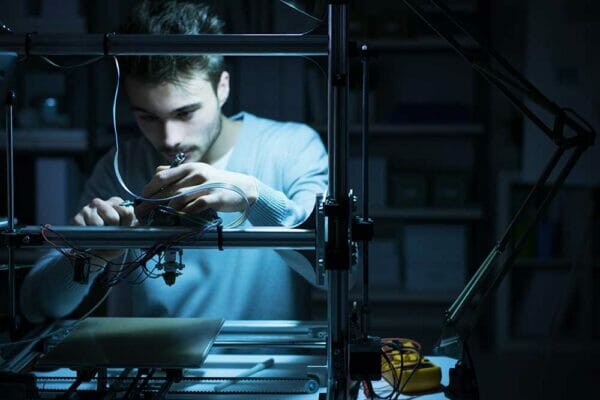
In an article by whyy.org, the National Public Radio station quotes retired police officer Randy Sutton, who says banning “Ghost guns” will not stop people from getting them. The reporter added interesting commentary to the quotes by Sutton.
Sutton added that because ghost guns are not regulated, making them go away outright is unrealistic.
Sutton’s words might be interpreted in such a manner. It seems clear Sutton meant the guns would not “go away outright” whether they were banned or not, whether they were regulated or not. Here is a quote from Sutton in the article.
“There’s not a chance in the world we’re going to ban these weapons. It’s impossible,” Sutton said. “You can make them illegal to possess. But the techno barn door has already been opened.”
The article includes this graphic from the Philadelphia police department. It shows a declining percentage of privately made firearms in the last two years.
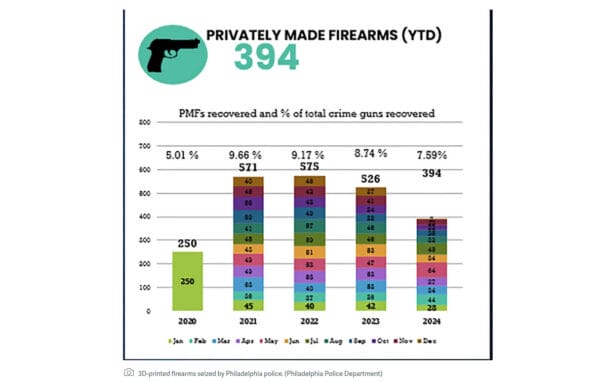
Sutton understands the reality, including the political reality. The technology to make guns without a factory has always existed in the United States, as has the legal right to do so.
Most guns were made in small shops during the Revolutionary era. Manufacturing was rapidly changing at the time of the ratification of the Bill of Rights. In a few decades, interchangeable parts would become a common technique. The first successful attempt at interchangeable parts for firearms was in France in 1785. Thomas Jefferson witnessed the demonstration. The French Revolution destroyed the workshop where the demonstration happened and even the memory of its success.
Thomas Jefferson took the concept to America. The United States pushed for interchangeable parts in its military small arms. In 1824, at Harpers Ferry Armory, the attempt succeeded.
In most cases, firearms continued to be made by hand, assembled from a collection of basic units, and hand-fitted to work, mostly by individual craftsmen, well after the Harpers Ferry success story. Individuals would often purchase a barrel or make one, purchase a stock or make one, then most often purchase a lock, and fit them all together to make them work.
No license was required to do this. The potential of serial numbers was known. They were not required. They were seldom used outside of the military. As firearms moved into factories, some manufacturers used serial numbers, but most did not.
Individuals have always been able to make firearms for themselves. Even relatively complex firearms such as revolvers were and have been made by individuals up to the present. Items such as bombs and grenades were and are much easier to make than firearms.
As precise metal working machines became cheaper and as metal shapes, such as steel tubes, became standardized and mass-produced, it became easier and easier for individuals to make their own firearms. Firearms are commonly produced in small jungle workshops around the world. They have commonly been produced in the United States by hobbyists. Where people are forbidden from legally obtaining firearms, the number of homemade firearms increases to meet demand. In the United States, in restrictive jurisdictions, the number of homemade firearms has always been higher than where firearms are easily and legally obtained.
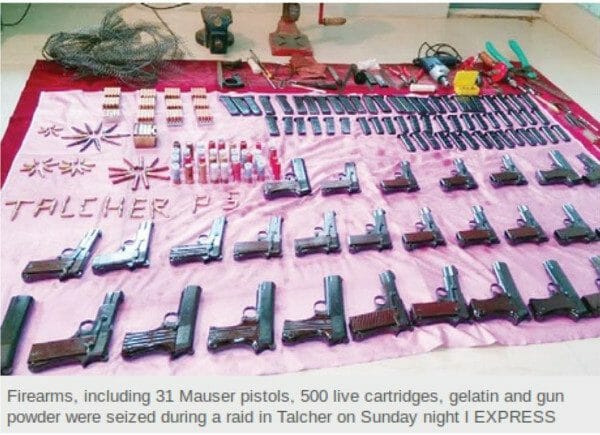
In the United States, in one of the most highly restricted jurisdictions, the District of Columbia, in 1977, 20% of the guns seized by police were homemade.
In 2010, 12% of the firearms in DC and Prince George’s had no serial numbers. As seen in the Philadelphia PD chart, personally made firearms are a lower percentage there than they were in DC 48 years ago or in DC and Prince George’s 14 years ago. These numbers are far from precise. The strong possibility of selection bias exists. The numbers show the percentage of homemade guns is not necessarily increasing and may even be dropping. This makes sense as Second Amendment rights are being restored across much of the United States.
In a nation with over 500 million firearms in private hands, it is usually easier for people who desire an untraceable firearm to purchase one on the unregulated market, have another person purchase one in the regulated market, or steal one than to make your own. Hundreds of millions of guns in the United States are unregistered and untraceable.
A few thousand or a few million “Ghost guns” will not make a measurable difference.
Analysis: Homemade firearms have always existed. The right to make your own firearm has always been part of the Second Amendment. The push to require government permission to make your own firearm is part of the Progressive ideology to ignore or destroy limits on government power. It has very little, if any, effect on criminals. It has a significant effect on law-abiding citizens. The desire to require serial numbers on homemade guns stems from the desire to impose universal registration of guns on the population of the United States. The ability to make your own gun defeats the idea of Universal Registration. Registration of Guns is, in effect, confiscation of guns.
The right to make and have your own guns, independent of government permission, is embodied in the ability to make and keep “ghost guns.”
About Dean Weingarten:
Dean Weingarten has been a peace officer, a military officer, was on the University of Wisconsin Pistol Team for four years, and was first certified to teach firearms safety in 1973. He taught the Arizona concealed carry course for fifteen years until the goal of Constitutional Carry was attained. He has degrees in meteorology and mining engineering, and retired from the Department of Defense after a 30 year career in Army Research, Development, Testing, and Evaluation.


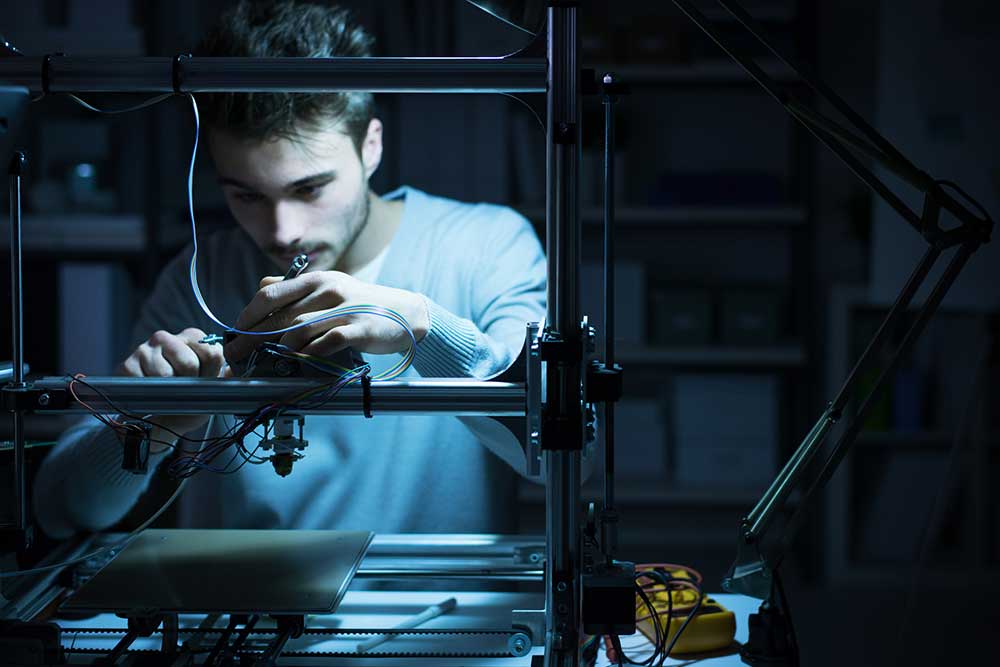

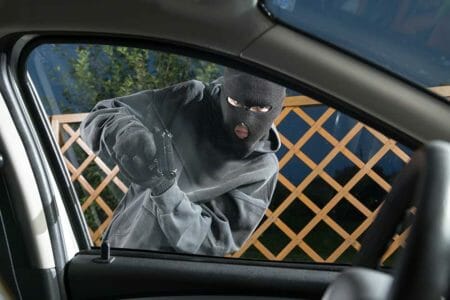


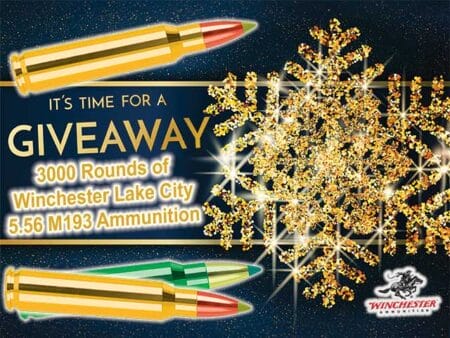
You’re probably right. But consider the source. DC police would confiscate an Archie comic book if the word gun was printed in it somewhere. LAPD displays Russian RPG-7 movie replicas to shock lawmakers into more compounded gun control! And to emphasize how desperately “outgunned” they are by “guys with grenades”. If blue cities can’t solve shootings, it’s because their trendy affirmative action investigators simply can’t solve them that’s all. And not because of some mysterious backyard gunsmith.
Day late and a dollar short. We have already had the opportunity to make our own and one of many ways is by buying kits and finishing them with the proper tools. The kits are not going away and CNC machines are not going away and the 3D printers are not going away. Reloaders like me are not going away!
You can make it illegal but tell me what criminal follows rules. To bad they don’t have common sense enough to know that they are criminals because they don’t. Leftists have a mental deficiency and disorder.
Remember ghost guns and machine guns are bad! All the other guns of the world liberals and cops love them. But the only ghost looking suckers running loose with machine guns out there that we see are the cops themselves! Every time some 6th grade practical joker dispatches them to SWAT Johnny Popcorn.